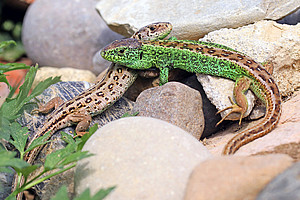Although nicotine-containing pesticides are now banned in Austria, the harmful substance can still be found in soil and plants. “Cigarette butts are one of the most common types of waste worldwide,” says Jason Rissanen from the University of Graz, citing international studies. “The residual nicotine then accumulates in high concentrations in flower nectar, contaminating food sources for ants and other insects.”
Jason Rissanen and biologist Dalial Freitak investigated how contaminated food affects ants. The researchers found the answer in the species Cardiocondyla obscurior. “It is found in almost all tropical regions of the world and has also been detected in greenhouses in Germany and France,” explains the scientist.
The only good news: nicotine has no effect on the development of offspring or healthy workers. “However, the toxic substance does have a negative impact on ants that suffer from fungal infections and whose immune systems are already weakened,” reports Rissanen. „The higher the concentration, the higher the mortality rate.“
Freitak and Rissanen admit that the results cannot be directly transferred to other insects, as they all react differently to toxins and pathogens. However, the biologists warn: ‘Bacteria and viruses play a significant role in the decline of insects. We must therefore pay close attention to any additional factors that could exacerbate the situation.’
The study was published in the scientific journal Biology Open.




